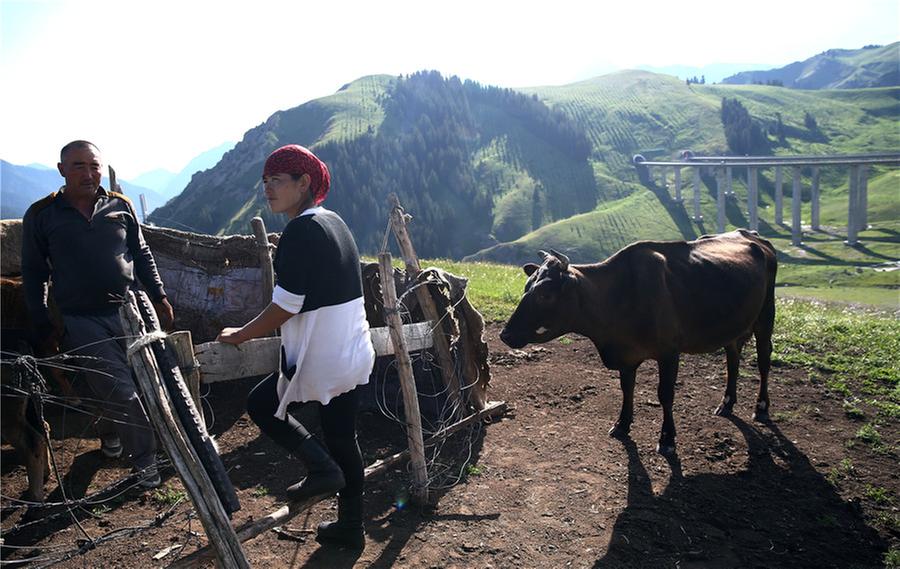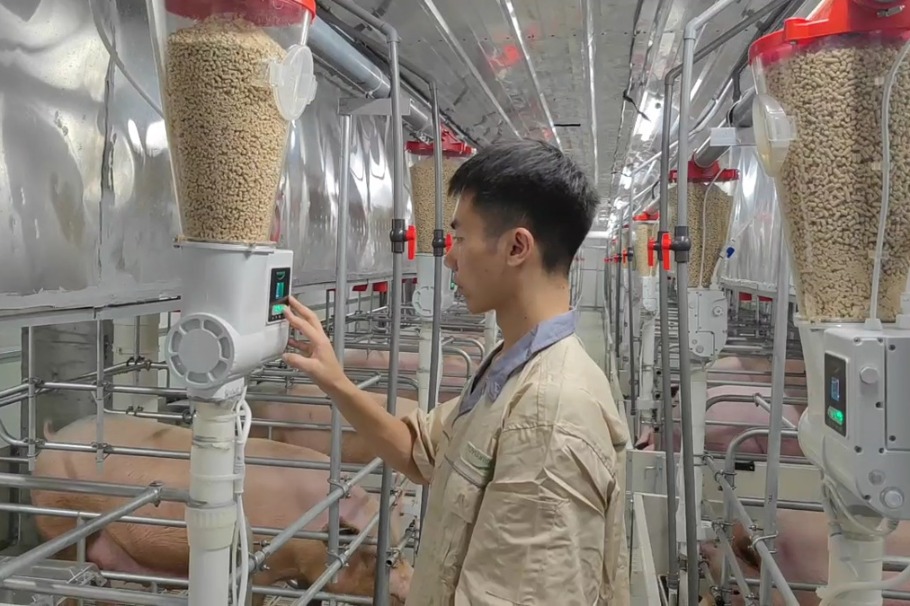Hoofing it in the fast lane

 |
| Herders work on fixing an enclosure for their livestock as sunset approaches.[Photo by Zou Hong/China Daily] |
The local government constructed a parallel road specially for livestock in 2013, but some herdsmen still prefer to use the highway because it is more direct and in a better condition.
"I wonder if the officer will issue tickets to all the sheep for traffic violations," Wang joked.
June is traditionally when sheep are moved to pastures in the mountains, where the grass is ideal for fattening up livestock. They will be moved again in the autumn, but the winter migration is the most important, as it can be a matter of life or death. If a herdsman departs too late and is hit by snow, the animals may not make it, with some journeys covering 350 km.
"The sheep that are moved around are healthier and don't get sick," said Mira Halimuraz, 23, whose family has already herded a flock of 300 sheep to their summer pasture.
As the sheep are being taken care of by her brother, Mira and her husband have opened a traditional Kazak yurt for tourists in the mountain overlooking Guozigou Bridge, which spans 360 meters.
"The highway has brought many people to see our beautiful grasslands, which we treasure," she said, adding that her guesthouse-known as Mira's House-is open only between June and September.
"We Kazak know that you have to respect nature and follow its rules. I hope my guests can see that while staying with us," she said.
- SCIA elevates global reach with launch of new English website
- Legacy of Tea Horse Road lives on in Yunnan village
- Brewing rich legacy of tea culture
- China's unfolding story of innovation, unity and influence
- Investment in water projects bears fruit
- China, Russia vow to foster cooperation, deepen ties





































